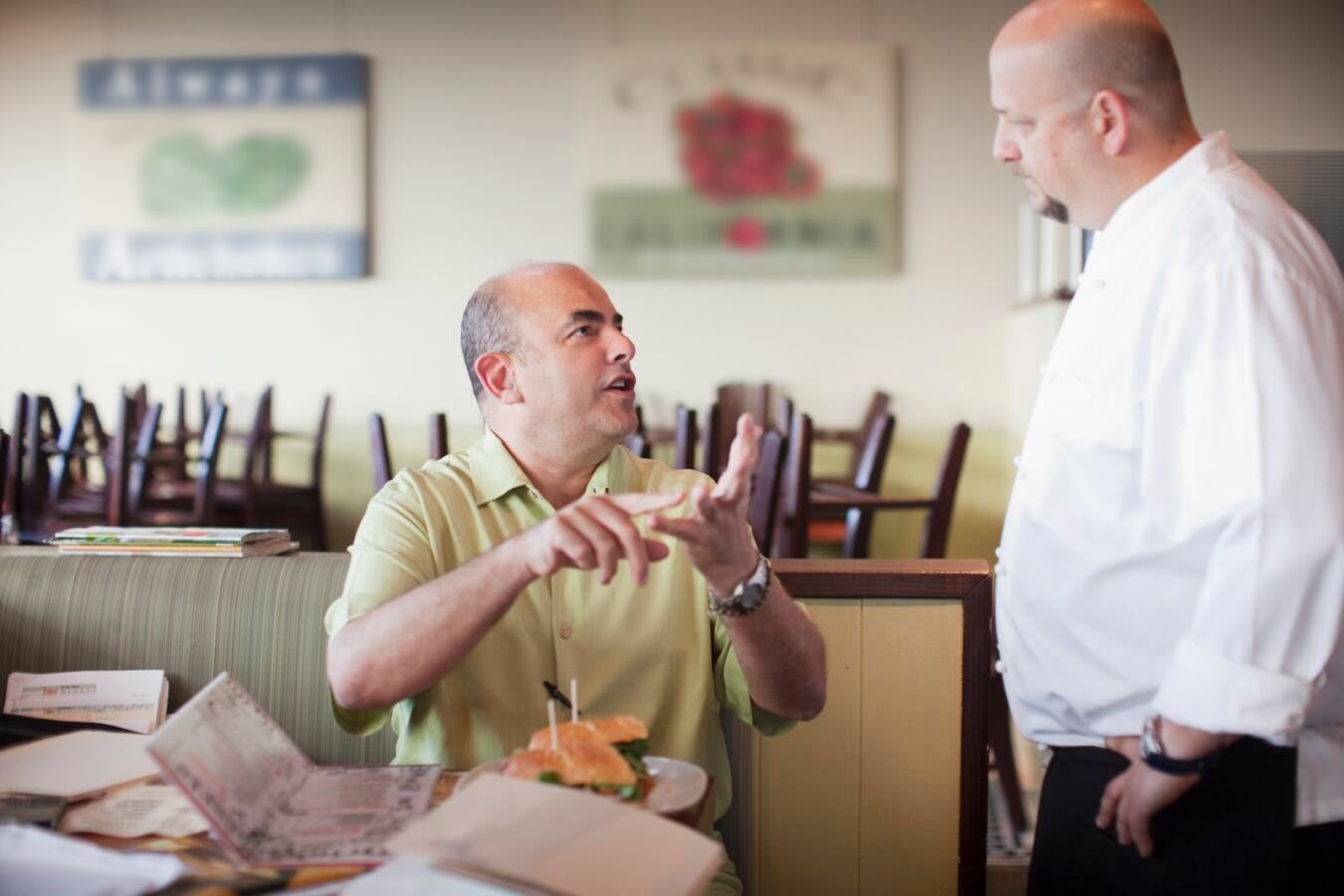Question: The owner of a kosher restaurant my husband and I frequent has been increasingly vocal about his financial support for political causes that we fiercely oppose. I hate the thought that the money we spend in his establishment could be used for this purpose, but we love the restaurant. Is it ethical for us to eat there anyway?
Let’s first clarify that we’re just talking about a guy who is just misguided and not a crook. If the business is shady, a personal boycott is more than warranted. In the Talmud, the rabbis were particularly concerned about price gouging (hafka’at shearim), especially for essential staples and Jewish ritual items. But rather than boycotting an unethical business, the rabbis’ punishment of choice was “flagellation until they are compelled to sell at the market price.” Personally, I’d rather be boycotted.
But it sounds like the issue is simply that you don’t approve of how the restaurant owner is using his money. Here too you’re on solid ground to refuse to give him your business. The Talmud (Avoda Zara 51b) discusses whether a Jew might pay admission to enter a bathhouse owned by a purveyor of idol worship. Interestingly, Jews frequented Roman bathhouses all the time, even if idols were present. However, the commentator Rashi explains that Jews could only enter if the admission was free. If they had to pay, and the profits went to support idolatry, it was forbidden for Jews to go there.
Later rabbinic authorities used this precedent to ban Jews from renting or buying property from churches, considered by many of them to be purveyors of idol worship. Personally, I feel it’s inappropriate to conflate Christianity, or any contemporary world religion, with biblical idol worship, but the point here is that Jewish law takes seriously how the establishments we patronize use the money we pay them. So if you decide not to continue going to the restaurant, you are on solid ethical ground, especially if you consider them to be supporting causes as abhorrent as idol worship was for the rabbis.
With your help, My Jewish Learning can provide endless opportunities for learning, connection and discovery.
Still, there might be better ways to use your time than playing mall cop, dividing our mercantile world into the children of darkness and children of light. Your shakshuka probably isn’t supporting unsavory causes any more than my taxes are supporting any number of policies I abhor — in other words, not a lot. Some of your money likely does some good too, like feeding the owner’s family.
Further, it could become exhausting keeping your enemy list current. If someone who leans socially progressive bases buying choices on a company’s political leanings, they would never eat a Domino’s pizza, shop at Home Depot or fly Delta. Meanwhile, a conservative would never get to enjoy Cherry Garcia ice cream. Ben and Jerry’s has long been a fixture in Israel, but the company’s founders have actively protested Israeli policies in the West Bank and Gaza. They’ve also had major differences with their parent company over some of these issues. So who is the real voice of Ben and Jerry’s? And when it’s 100 degrees and your kid is crying for an ice cream, does it matter?
Life can be pretty complicated when we start boycotting businesses based on politics. That’s because like people, companies are rarely perfectly consistent in their views. For example, Disney has presented an impressive array of strong female role models in the years since Ariel got legs and Belle figured out that Gaston was the real beast. But can we ever forgive them for the overt racism of Song of the South? And don’t get me started on the seven dwarfs.
That restaurant owner might support a political candidate you don’t like, but he might also donate heavily to a day school that your kids attend. He has also poured his life into sustaining a kosher restaurant in your community, which is often a precious commodity that needs the support of the populace.
If you really love the place, let me propose engaging in some dialogue about how uncomfortable you are with, say, the news channel that’s always on over the bar. If you are a frequent customer, hopefully the owner’s customer service switch will be turned on and the political activist muted, and a constructive dialogue might ensue. Unless he is simply rude, there might be an opening for constructive dialogue. On the other hand, if he is rude, you are absolutely free to check out the place down the street, or order kosher online from Goldbelly.

Rabbi Joshua Hammerman is the author of Mensch-Marks: Life Lessons of a Human Rabbi and Embracing Auschwitz: Forging a Vibrant, Life-Affirming Judaism That Takes the Holocaust Seriously. See more of his writing at his Substack page, In This Moment.



